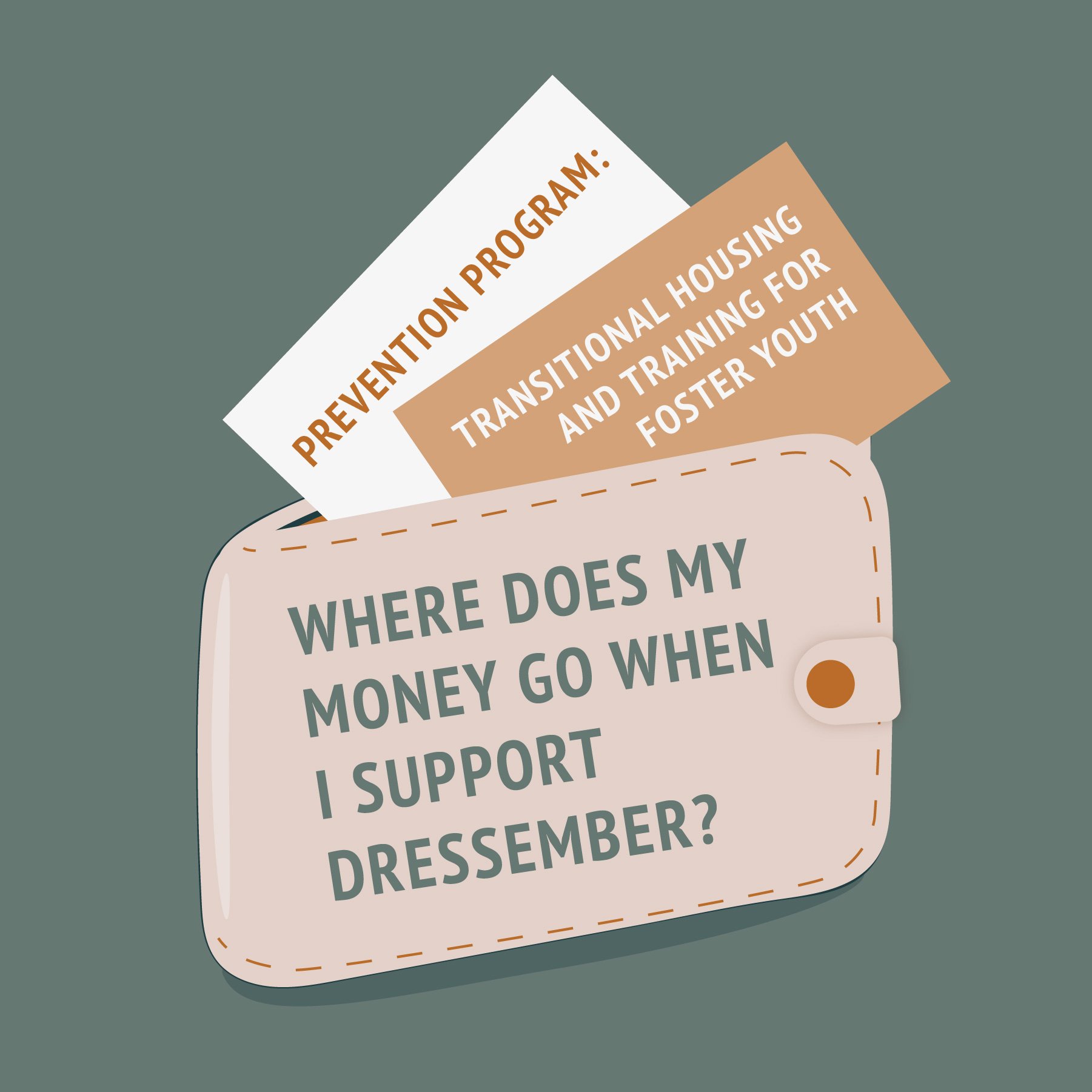The Dressember Network: CSEC Awareness and Transitional Housing for Foster Youth
At Dressember we are committed to addressing the link between systemic issues and vulnerability to trafficking situations. One vulnerability that survivors often have in common is a history of experiences with foster care. Abuse, neglect, and maltreatment can become normalized for foster youth, particularly when they are placed in unsafe homes or homes that are not a good match for their needs. When this happens, it can place children in a situation where they are more easily manipulated, which increases the likelihood that they may become victims of commercial sexual exploitation.
Through the Dressember Network, we serve children, teenagers, and transition-age youth (young people reaching the age of 18 and therefore aging out of the foster care system), who are at risk of or have been victimized by physical, sexual, and emotional abuse, neglect, and exploitation. The Dressember Network works to provide loving homes, independent life skills, and strong families or circles of support. The program’s vision is to end the cycle of abuse through fostering, fostering to adopt, pairing safe families with children in crisis, and providing training and education to those aging out of the foster care system.
The connection between foster care and human trafficking has led to a Dressember partnership called CSEC Awareness and Transitional Housing for Foster Youth to decrease the likelihood of exploitation for children in vulnerable situations. The program also provides care in the form of housing and case management for foster youth impacted or targeted by human trafficking. The training is one critical way in which we work to prevent trafficking in the future.
The Dressember Network provides Commercial Sexual Exploitation of Children (CSEC) Awareness training. The goal of the training is to prevent Commercial Sexual Exploitation of Children among those in the foster care system, particularly those aged 12-24 who often lack the support that they need. In 2013, the FBI found that 60% of child sex trafficking victims recovered were children who had been living in foster care or group homes. In Los Angeles, where Dressember is based, 80% of child sex trafficking victims recovered are children with experience in the foster care system. 60% of youth that age out of the foster care system become homeless within their first year out of the system. Homelessness is another key factor in determining vulnerability to human trafficking.
A New York Times study found that 85% of commercially sexually exploited youth had prior experience with the foster care system. This staggering number highlights the need for child-serving organizations to provide stability and safety for these children. However, lack of information and understanding of CSEC among child-serving organizations is often cited as the chief barrier in helping this group of people. Through partnerships like this one, the Dressember Network is working to provide stable relationships and stability so that foster care-involved youth are able to access the resources and services that they need.
This mission of serving foster youth and transition-age youth ages 12-24 is well-aligned with our prevention focus, particularly when we consider that 86 of 88 child victims of sex trafficking reported in Connecticut in 2012 alone were from foster care or residential placement. We are all able to play a role in mitigating the risks presented by the foster care system, even above and beyond the Dressember partnership. We encourage everyone to participate in supporting foster and transition-age youth by spreading information about the link between foster care and human trafficking, donating household items to local foster care networks, offering support to local foster families, or becoming a mentor to a child in the foster care system.
The Dressember Network is made up of 20 organizations that support programs in the following impact areas: advocacy, prevention, intervention, and survivor empowerment. Olive Crest is the partner organization working within the Dressember Network to make Commercial Sexual Exploitation of Children (CSEC) Training possible. When you support Dressember, you help dismantle trafficking holistically and in a way that prioritizes survivor needs and voices. Ready to join us? Register to become an advocate or make a donation today.
About the Author
Miranda Cecil is a second-year at Northeastern University School of Law. She graduated from the University of North Carolina in 2020 (go heels!) and shipped up to Boston. As a North Carolina transplant in New England, she loves exploring her new area on the weekends. In her free time, she enjoys cross-stitching, cycling, and reading. She hopes to use her legal degree and a passion for urban development to continue advocating for human trafficking survivors (and, despite the Boston winter, looks forward to the style challenge this December).



